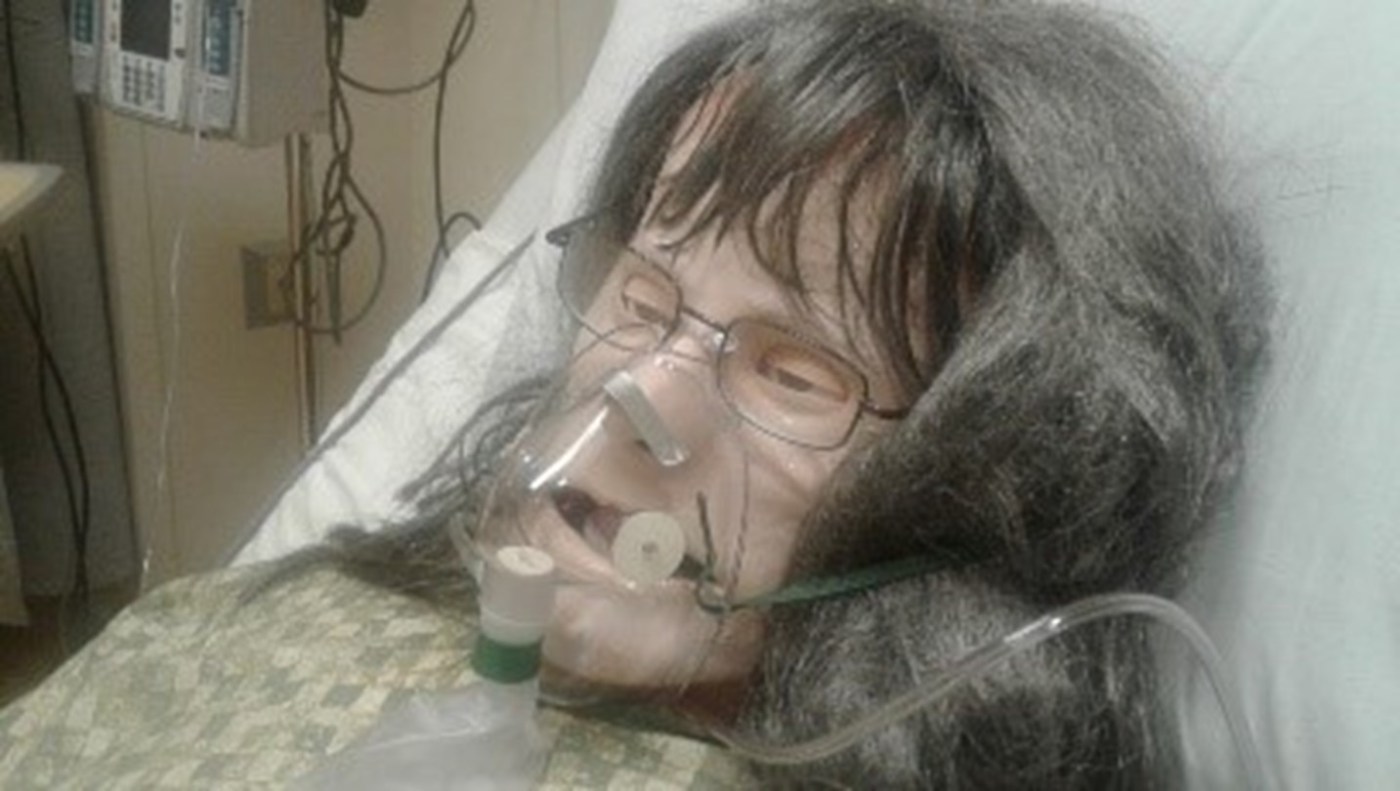To most of us, working up a heavy sweat means we’re being healthy by working out or enjoying a hot summer day. However, to medical professionals, it can be a quick sign that a patient is in poor condition or needs help. That’s why it is important for clinical Veteran caregivers to understand how to work with heavily sweating patients, and the best way to learn and improve that skill is through simulation training.
“Small details in medical simulations, like realistic sweat, make a big difference in the learner’s experience,” said Larry Davis, health care educational simulation specialist at the Simulation Learning, Evaluation, Assessment and Research Network (SimLEARN). “That’s why we really worked to develop a realistic synthetic sweat.”
SimLEARN conducts regular trainings for clinicians who improve health care for Veterans. In the past, VA simulation specialists used tap water sprayed on an actor or manikin, but that method caused moisture to evaporate too quickly. Professionals have also used bottled glycerin, which is drizzled on the skin, but the process was messy, time-consuming, and runs off the skin quickly. Some of the more advanced manikins have fake sweat ports that use water to emulate sweat. However, the effect is time consuming to set up and often leads to drenched sheets and doesn’t feel or look like real sweat. This leads to simulation experiences that don’t reflect “real world” encounters. Creating (close to) real world scenarios, safely and efficiently, is the value of any effective simulation.
Making a homemade sweat spray solves this problem while saving VA money. It provides realistic sweat on manikins that aren’t equipped with sweat technology or actors participating in training exercises. This sweat spray means that expensive “stage sweat” does not need to be purchased and the process involves a simple method of combining three parts glycerin (available at drug stores) with one part water in a dropper or spray bottle. The effect can be enhanced by applying a thin layer of cold cream before spraying the mixture on an actor or manikin.
“It may seem like an unimportant aspect but after doing simulation training with this sweat, it really gives you a feeling for when you’re caring for Veterans themselves,” said Davis.
SimLEARN is reimagining health care training through tiny changes like this, as well as bigger, broader efforts that are impacting the care of Veterans every day. Through innovative projects and advanced simulation efforts, those that care for Veterans are receiving the best training possible, resulting in the best care possible for our nation’s heroes.
Topics in this story
More Stories
Study underscores important role COVID vaccination can have in protecting Veterans from infection and reducing long-term health consequences
Columbia VA’s robotic surgery teams completed their 800th robotic surgery and are on schedule to hit 1,000 by the end of the year.
In a decentralized clinical trial, Veterans can participate from their own homes or local VA instead of having to travel to a research site.






